CAS Number anhydrous 7487-88-9, monohydrate 14168-73-1, dried 15244-36-7, heptahydrate 10034-99-8, Magnesium Sulfate Magnesium Sulphate Heptahydrate Monohydrare Dried Anhydrous USP BP EP Ph Eur Analytical Reagent FCC Food Grade Manufacturers Exporters


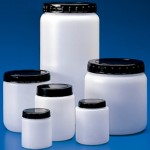
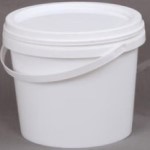
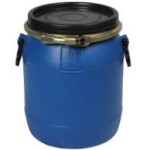
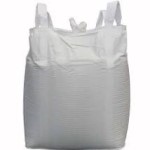
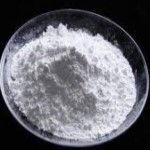
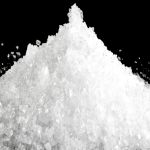
CAS Number 7487-88-9, Magnesium Sulfate Magnesium Sulphate Anhydrous Manufacturer Exporter
CAS Number 14168-73-1, Magnesium Sulfate Magnesium Sulphate Monohydrare Manufacturer Exporter
CAS Number 15244-36-7, Magnesium Sulfate Magnesium Sulphate Dried Manufacturer Exporter
CAS Number 10034-99-8, Magnesium Sulfate Magnesium Sulphate Heptahydrate Manufacturer Exporter
We specialize in supplying perfecty dried 99.8-99.99% Magnesium Sulfate.
For Properties Specifications of Magnesium Sulfate Magnesium Sulphate Heptahydrate Monohydrare Dried Anhydrous Click Properties, Specifications of Magnesium Sulfate Magnesium Sulphate Heptahydrate Monohydrare Dried Anhydrous Manufacturer.
For Uses of Magnesium Sulfate Magnesium Sulphate Heptahydrate Monohydrare Dried Anhydrous Click Uses of Magnesium Sulfate Magnesium Sulphate Heptahydrate Monohydrare Dried Anhydrous Manufacturer.
For For SDS MSDS Sheet of Magnesium Sulfate Magnesium Sulphate Heptahydrate Monohydrare Dried Anhydrous Click SDS Safety Data Sheet MSDS Sheet of Magnesium Sulfate Magnesium Sulphate Heptahydrate Monohydrare Dried Anhydrous Manufacturer.
The Properties and Specifications of Magnesium Sulfate Magnesium Sulphate Heptahydrate Monohydrare Dried Anhydrous:
Magnesium Sulfate USP Grade Specifications
MgSO4·xH2O
Sulfuric acid magnesium salt (1:1), hydrate.
Magnesium sulfate (1:1) monohydrate 138.36
Magnesium sulfate (1:1) heptahydrate 246.48 CAS 10034-99-8
Anhydrous 120.37 CAS 7487-88-9
Magnesium Sulfate, rendered anhydrous by ignition, contains not less than 99.0 percent and not more than 100.5 percent of MgSO4.
Identification: A solution (1 in 20) resonds to the tests for Magnesium and for Sulfate.
pH: between 5.0 and 9.2, in a solution (1 in 20).
Loss on drying: Dry it at 105 for 2 hours: the anhydrous form loses not more than 2% of its weight.
Loss on ignition: Weigh accurately about 1 g in a crucible, heat at 105 for 2 hours, then ignite in a muffle furnace at 450 ± 25 to constant weight: the monohydrate loses between 13.0% and 16.0% of its weight, the dried form loses between 22.0% and 28.0% of its weight, and the heptahydrate loses between 40.0% and 52.0% of its weight.
Chloride: A 1.0-g portion shows no more chloride than corresponds to 0.20 mL of 0.020 N hydrochloric acid (0.014%).
Iron:
FOR MAGNESIUM SULFATE INTENDED FOR USE IN PREPARING NON-PARENTERAL DOSAGE FORMS—
Dissolve 0.50 g in 40 mL of water and proceed as directed in the test for Iron: the limit is 20 µg per g.
FOR MAGNESIUM SULFATE INTENDED FOR USE IN PREPARING PARENTERAL DOSAGE FORMS— the limit is 0.5 µg per g.
Heavy metals: Dissolve 2 g in 25 mL of water: the limit is 0.001%.
Selenium: The limit is 0.003%.
Dried Magnesium Sulphate BP Ph Eur Grade Specifications Magnesium Sulfate
Dried Epsom Salts or Magnesium Sulphate Dried
Preparation: Magnesium Sulphate Paste
DEFINITION
Dried Magnesium Sulphate contains not less than 62.0% and not more than 70.0% of MgSO4.
It may be prepared by drying magnesium sulphate at 100° until it has lost approximately 25% of its weight.
CHARACTERISTICS
A white powder.
Freely soluble in water; dissolves more rapidly in hot water.
IDENTIFICATION
Yields the reactions characteristic of magnesium salts and of sulphates.
TESTS
Acidity or alkalinity: To 10 ml of a 7.5% w/v solution in carbon dioxide-free water add 0.05 ml of phenol red solution. Not more than 0.2 ml of either 0.01M hydrochloric acid VS or 0.01M sodium hydroxide VS is required to change the colour of the solution.
Arsenic: 0.33 g dissolved in 25 ml of water complies with the limit test for arsenic, (3 ppm).
Heavy metals: Dissolve 1.3 g in 20 ml of water and add 1 g of ammonium chloride. 12 ml of the resulting solution complies with limit test A for heavy metals, Appendix VII. Use lead standard solution(1 ppm Pb) to prepare the standard (15 ppm).
Iron: 0.33 g dissolved in 10 ml of water complies with the limit test for iron, Appendix VII (30 ppm).
Chloride: 0.13 g dissolved in 15 ml of water complies with the limit test for chlorides, Appendix VII (400 ppm).
Insoluble matter: 7.5 g dissolves in 20 ml of water, producing a solution which may be slightly turbid at first but which becomes clear in a few minutes.
Magnesium Sulphate Heptahydrate
Magnesium Sulphate Heptahydrate BP Ph Eur Grade Specifications
Epsom Salts
MgSO4,7H2O -- 246.5 -- CAS 10034-99-8
Action and use: Osmotic laxative; used in treatment of electrolyte deficiency.
DEFINITION
Content: 99.0 per cent to 100.5 per cent (dried substance).
CHARACTERS
Appearance: White or almost white, crystalline powder or brilliant, colourless crystals.
Solubility: Freely soluble in water, very soluble in boiling water, practically insoluble in ethanol (96 per cent).
IDENTIFICATION
A. It gives the reactions of sulphates.
B. It gives the reaction of magnesium.
TESTS
Solution S: Dissolve 5.0 g in water R and dilute to 50 ml with the same solvent.
Appearance of solution: Solution S is clear and colourless.
Acidity or alkalinity: To 10 ml of solution S add 0.05 ml of phenol red solution. Not more than 0.2 ml of 0.01 M hydrochloric acid or 0.01 M sodium hydroxide is required to change the colour of the indicator.
Chlorides: Maximum 300 ppm.
Arsenic: Maximum 2 ppm, determined on 0.5 g.
Iron: Maximum 20 ppm.
Heavy metals: Maximum 10 ppm.
Loss on drying: 48.0 per cent to 52.0 per cent, determined on 0.500 g by drying in an oven at 110-120C for 1 h and then at 400C to constant mass.
Magnesium Sulfate FCC Food Grade Specifications Magnesium Sulphate
Epsom Salt
MgSO4·xH2O Formula wt, monohydrate 138.38
Formula wt, heptahydrate 246.47
INS: 518
CAS: Magnesium Sulfate monohydrate 14168-73-1
CAS: Magnesium Sulfate heptahydrate 10034-99-8
CAS: Magnesium Sulfate dried 15244-36-7
DESCRIPTION
Magnesium Sulfate occurs as a colorless crystal or a granular crystalline powder. It is produced with one or seven molecules of water of hydration or in a dried form containing the equivalent of about 2.3 waters of hydration. It is readily soluble in water, slowly soluble in glycerin, and sparingly soluble in alcohol.
Function: Nutrient.
REQUIREMENTS
Identification: A 1:20 aqueous solution gives positive tests for Magnesium and for Sulfate.
Assay: Not less than 99.5% of MgSO4 after ignition.
Lead: Not more than 4 mg/kg.
Loss on Ignition Monohydrate: Between 13.0% and 16.0%; Heptahydrate: Between 40.0% and 52.0%; Dried: Between 22.0% and 28.0%.
Selenium: Not more than 0.003%.
Magnesium Sulfate Analytical Reagent Grade Specifications Magnesium Sulphate
Magnesium Sulfate Heptahydrate
MgSO4-7H2O
Formula Weight 246.48
CAS Number 10034-99-8
REQUIREMENTS
Assay: 98.0-102.0% MgSO4-7H2O
pH of a 5% solution: 5.0-8.2 at 25C
MAXIMUM ALLOWABLE
Insoluble matter: 0.005%
Chloride (Cl): 5 ppm
Nitrate (NO3): 0.002%
Ammonium (NH4): 0.002%
Calcium (Ca): 0.02%
Manganese (Mn): 5 ppm
Potassium (K): 0.005%
Sodium (Na): 0.005%
Strontium (Sr): 0.005%
Heavy metals (as Pb): 5 ppm
Iron (Fe): 5 ppm.
The Uses of Magnesium Sulfate Magnesium Sulphate Heptahydrate Monohydrare Dried Anhydrous:
Magnesium sulfate as a medication is used to treat and prevent low blood magnesium and seizures in women with eclampsia. It is also used in the treatment of torsades de pointes, severe asthma exacerbations, constipation, and barium poisoning. It is a mineral supplement used to prevent and treat low amounts of magnesium in the blood. Magnesium sulfate is used to treat convulsions during pregnancy, nephritis in children, magnesium deficiency, and tetany. It's taken orally for occasional constipation, and it's also used as a soaking solution to help relieve pain caused by soreness, muscle aches.
The MSDS-SDS Hazard Statement of Magnesium Sulfate Magnesium Sulphate Heptahydrate Monohydrare Dried Anhydrous:
Magnesium Sulfate or Magnesium Sulfate Anhydrous, Monohydrate & Dried Heptahydrate SDS Safety Data Sheet
MSDS Sheet, Material Safety Data Sheet 14-Jan-23
1. Product Identification
Product Name & Other Names: Magnesium sulfate (1:1) anhydrous or monohydrate or dried, Sulfuric acid magnesium salt. Epsom salt. Magnesium sulfate heptahydrate
CAS No.: 7487-88-9 Anhydrous, 14567-64-7 Monohydrate, 15244-36-7 Dried, 10034-99-8 Heptahydrate
EINECS: 231-298-2
Molecular Weight: 120.37 for Anhydrous.
Chemical Formula: MgSO4.xH2O
Relevant uses and uses advised against (if any): Industrial Manufacturing.
2. Hazards Identification
GHS, Globally Harmonized System Classification in accordance with 29 CFR 1910
Classification according to Regulation (EC) No 1272/2008
Not a hazardous substance or mixture according to Regulation (EC) No. 1272/2008.
This substance is not classified as dangerous according to Directive 67/548/EEC.
Labeling according to GHS & Regulation (EC) No 1272/2008
GHS Label Elements NONE |
Signal Word: None
Precautionary statements:
P261: Avoid breathing dust/fume/gas/mist/vapors/spray.
P262: Do not get in eyes, on skin, or on clothing.
P281: Use personal protective equipment as required.
P302+P352: IF ON SKIN: Wash with plenty of soap and water.
P304+P340: IF INHALED: Remove victim to fresh air and keep at rest in a position comfortable for breathing.
P305+P351+P338: IF IN EYES: Rinse cautiously with water for several minutes. Remove contact lenses, if present and easy to do. Continue rinsing.
P337+313: If eye irritation persists get medical advice/attention.
3. Composition/Information on Ingredients
Product Name & Other Names: Magnesium sulfate (1:1) anhydrous or monohydrate or dried, Sulfuric acid magnesium salt. Epsom salt.
CAS No.: 7487-88-9 Anhydrous, 14567-64-7 Monohydrate, 15244-36-7 Dried, 10034-99-8 Heptahydrate
EINECS: 231-298-2
4. First Aid Measures
Always seek medical attention after first aid measures are provided.
Inhalation: Remove to fresh air. Get medical attention for any breathing difficulty.
Ingestion: Give several glasses of water to drink to dilute. If large amounts were swallowed, get medical advice.
Skin Contact: Remove any contaminated clothing. Wash skin with soap and water for at least 15 minutes. Get medical attention if irritation develops or persists.
Eye Contact: Wash thoroughly with running water. Get medical advice if irritation develops.
Note to Physician: IV administration of calcium gluconate will partially reverse the effects of acute magnesium toxicity. Ventricular support with calcium chloride infusion and mannitol forced diuresis has also been successful.
5. Fire Fighting Measures
Fire: Not flammable.
Explosion: It is not considered to be an explosion hazard.
Fire Extinguishing Media: Use any means suitable for extinguishing surrounding fire.
Special Information: Use protective clothing and breathing equipment appropriate for the surrounding fire.
Products of Combustion: Sulphuric acid, Sulphur Dioxide and Magnesium Oxide may be formed.
Extinguishing Media Not recommended: None specified.
Special Information: In the event of a fire, wear full protective clothing and NIOSH-approved self-contained breathing apparatus with full face piece operated in the pressure demand or other positive pressure mode. At high temperatures under fire conditions, it may produce toxic or irritating fumes. Fire-extinguishing work is done from the windward and the suitable fire-extinguishing method according to the surrounding situation is used.
6. Accidental Release Measures
Personal precautions, protective equipment, and emergency procedures: Avoid breathing dust/fumes/gas/mist/vapors/spray. Use individual protective equipment (waterproof boots, suitable protective clothing, safety glasses, etc.). Do not approach facing the wind.
Environmental precautions: Do not let the product enter drains, soil, or water sources.
Methods and materials used for containment cleanup procedures and Storage: Contain spilled material. Do not let the product enter drains. Use a shovel to put the material into a convenient waste disposal container.
7. Handling and Storage
Precautions for safe handling: Apply according to good manufacturing and industrial hygiene practices. Ensure proper ventilation. In case of insufficient ventilation, wear suitable respiratory equipment. Wash thoroughly after handling. Do not drink, eat, or smoke while handling. Avoid contact with skin, eyes, and clothing. Minimize dust generation. Avoid breathing dust/fumes/gas/mist/vapors/spray. Avoid contact with eyes, skin, and clothing. Keep container tightly closed. Avoid ingestion and inhalation. Use individual protective equipment (waterproof boots, suitable protective clothing, safety glasses, etc.). Prevent any contact with hot surfaces.
Conditions for safe storage, including any incompatibilities: Store in cool, dry, and ventilated area away from heat sources and protected from sunlight in tightly closed original container. Keep air contact to a minimum. Store protected from heat, sparks and ignition sources and incompatible materials. Avoid contact with skin and eyes. Avoid inhalation of dust/mist/vapor. Do not store with incompatible materials like strong oxidizing agents, ethoxy ethyl alcohols, arsenates, phosphates, tartrates, lead, barium, strontium, and calcium.
8. Exposure Controls/Personal Protection
Airborne Exposure Limits: None established.
Ventilation System: A system of local and/or general exhaust is recommended to keep employee exposures as low as possible.
Personal Respirators (NIOSH Approved): For conditions of use where exposure to dust or mist is apparent and engineering controls are not feasible, a particulate respirator may be worn.
Skin Protection: Wear protective gloves and clean body-covering clothing.
Eye Protection: Use chemical safety goggles. Maintain eye wash fountain and quick-drench facilities in work area.
Other Control Measures: Maintain good housekeeping in work area. Handle in accordance with good industrial hygiene and safety practice.
9. Physical and Chemical Properties
Appearance: Magnesium Sulfate is white powder, crystals or granules.
Odor: It is odorless.
Odor threshold: Not available.
pH: Aqueous solution is neutral or slightly acid.
Relative density: Not available.
Melting Point: 1124C (2055F) Decomposes.
Initial boiling point and boiling range: Not available.
Flash point: Not available.
Auto-ignition temperature: Not available.
Decomposition temperature: Not available.
Upper/lower flammability or explosive limits: Not available.
Vapor pressure: Not available.
Vapor density: Not available.
Evaporation rate: Not available.
Flammability (solid, gas): Not available.
Partition coefficient: n-octanol/water: Not available.
Solubility: Very soluble in water.
Viscosity: Not available.
Molecular formula: MgSO4 (xH2O)
Molecular weight: 120.37 for anhydrous.
10. Stability and Reactivity
Stability: Stable under ordinary conditions of use and storage. Absorbs moisture on exposure.
Hazardous Decomposition Products: Oxides of sulfur and the contained metal.
Hazardous Polymerization: Will not occur.
Incompatibilities: Ethoxy ethyl alcohols, arsenates, phosphates, tartrates, lead, barium, strontium, and calcium.
Conditions to Avoid: Heat, moisture, incompatibles.
11. Toxicological Information
Toxicity to Animals:
LD50 Subcutaneous - mouse - 645 mg/kg
LD50 Subcutaneous - rat - 1.200 mg/kg
Carcinogenic Effects: Not a reported carcinogen by IARC NTP ACGIH OSHA.
Mutagenic Effects: Laboratory experiments have resulted in mutagenic effects.
Teratogenic Effects: No.
12. Ecological Information
Environmental Toxicity:
24 hour EC50 Daphnia magna (water flea) : 1700 mg/L.
24 hour LC50 Lepomis machrochirus (bluegill) : > 5000 mg/L [static].
72 hour EC50 Scenedesmus subspicatus (green algae) : 2700 mg/L.
This material is not expected to be toxic to aquatic life.
Results of PBT and vPvB assessment: This substance/mixture contains no components considered to be either persistent, bioaccumulative and toxic (PBT), or very persistent and very bioaccumulative (vPvB) at levels of 0.1% or higher.
13. Disposal Considerations
Whatever cannot be saved for recovery or recycling should be managed in an appropriate and approved waste disposal facility.
14. Transport Information
DOT USA, TDG Canada & ADR/RID Europe: Not controlled.
IMDG/IMO: Not controlled.
IATA/ICAO: Not controlled.
15. Regulatory Information
USA:
California No Significant Risk Level: None of the chemicals in this product are listed.
Section 16 - Additional Information
DISCLAIMER: The information and recommendations set forth herein are presented in good faith and believed correct as of the date hereof. It is compiled from various sources, and it is not necessarily all inclusive nor fully adequate in every circumstance. In addition, these suggestions should not be confused with nor followed in violation of applicable laws, regulations, rules, or insurance requirements applicable. This SDS MSDS sheet is intended only as a guide to the appropriate precautionary handling of the material by a professionally trained person using this product. Individuals receiving the information must exercise their independent judgment in determining its appropriateness for a particular purpose. This shall not constitute a guarantee for any specific product features and shall not establish a legally valid contractual relationship. In no case shall our company be liable to loss or damages by the product user.Anmol Chemicals & Pharmaceuticals Pvt. Ltd. is an off-shoot of Anmol Chemicals Taloja. It is located in MIDC Taloja and it is manufacturing pharmaceutical grades of API, Excepients, Food grade and Reagent grade chemicals. Anmol Chemicals & Pharmaceuticals Pvt. Ltd. is a several decades old group of companies, engaged in manufacturing, supplying, distributing, wholesale supplies for actual users, retail or small pack supplies for research and development chemicals, fine and speciality chemicals, pharmaceutical excipients, mineral fortifiers in chemically pure, Analytical reagent grade, IP BP USP Ph Eur EP JP and other pharmaceutical grade monograph including FCC Food grade chemicals and Nutraceuticals, Mineral Fortifiers at best prices.
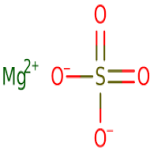
Magnesium Sulfate Magnesium Sulphate Heptahydrate Monohydrare Dried Anhydrous Structure
CAS Number anhydrous 7487-88-9, monohydrate 14168-73-1, dried 15244-36-7, heptahydrate 10034-99-8, Magnesium Sulfate Magnesium Sulphate Heptahydrate Monohydrare Dried Anhydrous Manufacturer Exporter
ANMOL CHEMICALS & PHARMACEUTICALS Pvt. Ltd.
India, USA, Europe, UAE
TELEPHONE: +912223770100
Navi Mumbai, INDIA
e-mail: info(At the rate i.e. @)anmol.org
Copyright. 10-jun-25
We manufacture:
Glacial Acetic Acid Manufacturer
Copper Sulfate or Cupric Sulphate
Maleic Acid
Malic Acid
Maltodextrin
Hydrated Manganese Glycerophosphate
Methylene Blue
Myristic Acid

